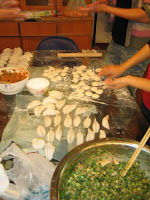Xishi 西施 - Her beauty causing all fish to sink 沉鱼
 Dynasty: Zhan guo 战国 (B.C. 475 - 221)
Dynasty: Zhan guo 战国 (B.C. 475 - 221)
Beauty power: It's said that when Xishi was looking at herself on the water surface, all fish were astonished by her beauty until sinking down to the bottom of the river.
Weak point: Big feet; Thus, she used to wear a long gown
Role: Conquering a kingdom with her beauty
Commonly represented in the painting as: Xishi Washing Veil _ 西施浣纱纱 (xīshī huàn shā)
----------------------------------------------------------------------------------
Wan Zhaojun 王昭君- Her beauty causing flocks of flying geese to fall down 落雁
 Dynasty: Han 汉朝 (B.C. 206 - A.D. 25)
Dynasty: Han 汉朝 (B.C. 206 - A.D. 25)
Beauty power: Causing a flock of flying geese stunned and consequently fell down when seeing her beauty
Weak point: Slipped shoulder; Hence she used to wear a robe
Role: Maintaining peace among two kingdoms
Commonly represented in the painting as: Zhaojun Leaving Hometown _ 昭君出塞 (zhāojūn chū sài)
----------------------------------------------------------------------------------
Diao Chan 貂婵 - Her beauty causing the moon to hide 闭月
 Dynasty: San guo 三国 (A.D. 220 - 280)
Dynasty: San guo 三国 (A.D. 220 - 280)
Beauty power: Someone noticed that when she was praying to the moon, the cloud suddenly appeared and covered the moon. Then the story started spreading telling that the beauty of Diao Chan caused the moon too shy to appear on the sky.
Weak point: Small earlobes; used to wear big ear rings
Role: Setting a trap to remove a tyrant
Commonly represented in the painting as: Diao Chan Praying to the Moon _ 貂婵拜月 (diāochán bài yuè)
Note: Diao Chan was the deadliest beauty among fours. However, she might be only a fictional figure as her name has never been mentioned in historical literature; however, found only in the famous Chinese novel: Romance of Three Kingdoms.
----------------------------------------------------------------------------------
Yang Guifei 杨贵妃 (=Yang Yuhuan 杨玉环) - Her beauty discouraging peonies to bloom 羞花

Dynasty
: Tang 唐朝 (A.D. 618 - 907)
Beauty power: Her beauty discouraged all peonies to bloom. Fact: She had planned to take a walk with the emperor in a one day evening. In that day in the morning, she had cut all peonies' roots. Hence when she and the emperor were taking a walk in that garden, all peonies didn't bloom as fresh as usual. Everyone thought that the peonies were too shy to show their beautiful bloom in front of Guifei's beauty. Eventually, the emperor was attracted to her and had her as the imperial concubine.
Weak point: Body odour; use perfume more often
Role: The most multi-talented one among the four beauties. Her main talents included playing chess, playing music instrument, dancing, and reading poem. When she became the high-ranked imperial concubine, she benefited all of her relatives through nepotism.
Commonly represented in the painting as: The Beauty of the Drunken Guifei _ 贵妃醉酒 (guìfēi zuì jiǔ)
----------------------------------------------------------------------------------
Reference:
http://www.womenofchina.cn/people/women_in_history/1432.jsp
 From what I've seen, I think Qingdao is better than Dalian, the city is more modern and well-arranged, and of course beaches are much more beautiful than Dalian's. So, if you are into beach culture, you'll like Qingdao very much. Qingdao has more wide sandy beaches, so plenty choices of place on where to swim and do the sun bathing. (Still, can't be compared to the ones in Bali or Goldcoast thou).
From what I've seen, I think Qingdao is better than Dalian, the city is more modern and well-arranged, and of course beaches are much more beautiful than Dalian's. So, if you are into beach culture, you'll like Qingdao very much. Qingdao has more wide sandy beaches, so plenty choices of place on where to swim and do the sun bathing. (Still, can't be compared to the ones in Bali or Goldcoast thou).
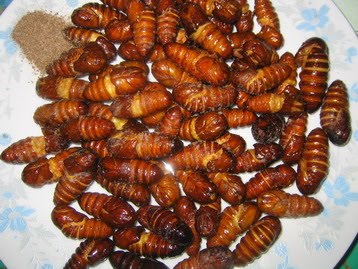

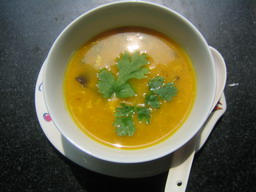


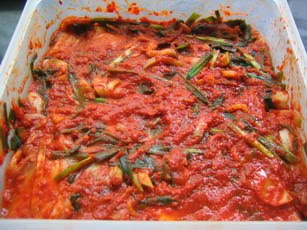
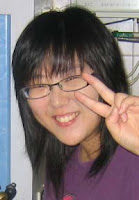


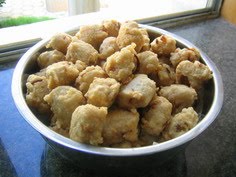
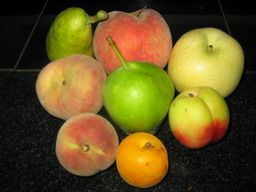 Upper (L to R): pear 1 (鸭梨), peach big (水蜜桃), pear 2 (香水梨)
Upper (L to R): pear 1 (鸭梨), peach big (水蜜桃), pear 2 (香水梨) "It's nice to have a visit from my aunty and uncle". My uncle was born in Palembang, so he knows how to make a tasty "pempek", a traditional food from Palembang, South Sumatera. He taught me how to make it. I'll post the pempek recipe very soon. We cooked lots of sea food, heaps heaps of seafood here in
"It's nice to have a visit from my aunty and uncle". My uncle was born in Palembang, so he knows how to make a tasty "pempek", a traditional food from Palembang, South Sumatera. He taught me how to make it. I'll post the pempek recipe very soon. We cooked lots of sea food, heaps heaps of seafood here in 














